
Audiogalaxy 2.0 launches in beta after 8-year dormancy
Audiogalaxy is back. But it's not the same service you knew a decade ago.
Audiogalaxy was one of the most elegant peer-to-peer filesharing services of the early 2000's, pairing a robust P2P client with a Web-based search and indexing system that made Napster look sloppy by comparison.

Borders targets bloggers with new e-book publishing platform
Following last week's debut of "Kindle Singles," a new shorter-form publishing format exclusively for Amazon's Kindle e-reader, book retailer Borders has announced its own blogger-centric e-reader publishing platform called "Borders -- Get Published."
Powered by BookBrewer, "Get Published" will let independent authors publish and sell their e-books through the Borders e-book store in a quick and easy fashion. Borders is specifically targeting bloggers with this service, promising "Blog to e-book in 10 minutes."

Opera announces last 10.70 build; Opera 11, complete with browser extensions, comes next
Very soon, the first build of Opera 11 will be released, and with it will come the long-awaited support for browser extensions.
Yesterday at Up North Web, Opera Software's global press day in Oslo, Norway, it was confirmed that Opera 11 will support browser extensions, the plug-ins that users can incrementally add to their browser to customize the experience. All of Opera's competitors: Internet Explorer, Firefox, Chrome, and now Safari, each offer their own extension architecture already.
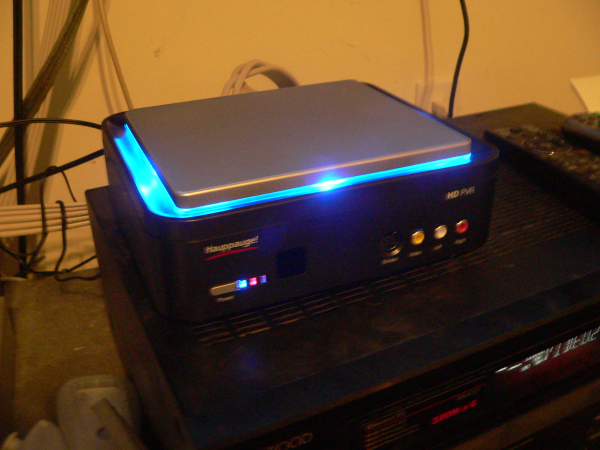
Hauppauge HD PVR and Windows Media Center: Is it the working-class TiVo?
The promise of Hauppauge's HD PVR digital recording device is that it will enable you to use the expensive television signal being piped into your house, on your own terms. Just a few years ago, it seemed, it was easier for most folks to be able to use that signal however and whenever they wanted, and TiVo blasted open the doors for people with busy lives to start, stop, restart, collect, and re-watch the programs that made the intervening hours between crises somewhat enjoyable.
But since then, the restraints and constraints started re-appearing -- the same-room recording restrictions, the "broadcast flags," the availability constraints, the second-run and third-run limitations that make lower-class viewers wait for upper-class viewers to be served first. As studios and content providers act on their second thoughts about opening up digital availability, "on demand" is becoming more of a misnomer. Perhaps "on plea" is more appropriate.

Netflix instant streaming gets bumped up to Dolby 5.1 surround, 1080p with PlayStation 3 update
Netflix and Dolby Laboratories today announced that Netflix Instant streaming will be enabled with 5.1 channel surround beginning on October 18.
The first consumer device to support the higher quality audio will be the Sony PlayStation 3, but Netflix says the feature will eventually come to more hardware, like the many connected HDTVs, Blu-ray players, set-top boxes, video game consoles, and mobile handsets supporting Netflix streaming today.
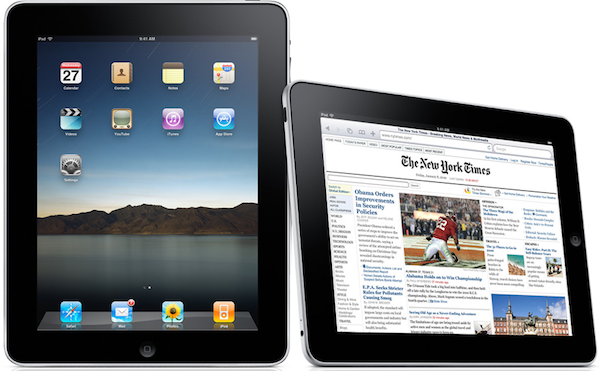
Is Apple No. 1 and not No. 3 in U.S. PC shipments?
It's a follow-up question to another question posed in late August: "Is Apple the real U.S. PC market share leader -- or soon will be?" I ask both questions based on another: Is iPad a personal computer? I assert "Yes" based on function, but neither Gartner nor IDC, which both released preliminary third-quarter PC shipment data late yesterday, classify iPad as a PC. Right now, iPad isn't really counted anywhere, despite generating $2.17 billion in new revenue during the launch quarter. If iPad is counted as a PC, then based on analysts' projected tablet shipments and IDC's Q3 data, Apple could rank as No. 1 in the United States. What is iPad then?
Even without counting the tablet, Apple had a great quarter. In the United States, Apple shipped 1.999 million (why isn't it rounded up to 2 million) Macs during Q3, according to IDC. U.S. Mac shipments grew 24.1 percent year over year reaching 10.6 percent market share, up from 8.9 percent in Q3 2009. IDC put Apple at No. 3 in the United States, but Gartner asserted No. 4, with 1,831,664 units to Acer's 1,848,511 for a difference of 16,847 units. Gartner had U.S. Mac shipments growing 13.7 percent year over year with third-ranked Acer falling 21 percent. Apple's market share was 10.4 percent, according to Gartner. Either Apple sold a helluva lot of Macs during Q3 or the company stuffed the retail channel with stock; Gartner and IDC only measure shipments into the channel not out of it. Given Apple's usually tight inventory management, I'd wager on sales.

Verizon gets the iPad...but it's Wi-Fi only
Verizon Wireless and Apple today announced that the iPad will be available in 2,000 Verizon Wireless Stores on Thursday, October 28th.
But don't jump out of your skin just yet, it's not a CDMA iPad.

Intuit launches a much more 'Minty' Quicken 2011
Mountain View software company Intuit has launched a new version of its Quicken personal finance software that offers a slick new interface that comes from the Mint.com product engineering team the company acquired one year ago.
For the 20th anniversary of Quicken, Intuit has taken big steps to make the software more approachable for new users, more in tune with online financial services, and better at automatically categorizing transaction data it receives.

Bing will use your Facebook friends to personalize search results
Microsoft and Facebook Wednesday unveiled some new search tools for Bing which integrate data from a user's circle of friends into Bing's search results.
In the Bing blog on Wednesday, Microsoft Senior Vice President of online services Satya Nadella said 50% of users consider their friends' opinions when making a decision online. Bing is trying to capitalize on this by incorporating the "likes" of a user's friend list into search results.
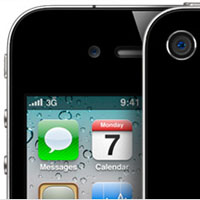
Apple patents parental controls for texting, 'sexting' a target
Apple was awarded a patent on technologies that would allow for the control of content sent and received to a mobile device, essentially filtering out any objectionable content within text messages. With "sexting" becoming ever more prevalent, a read through the patent which was published online Tuesday has lead some to call it the "anti-sexting" patent.
Parental controls are added to the device, which allows the administrator to choose how content is filtered. The filtering occurs as the message is typed, blocking certain text from being entered before it is sent. It could even be blocked altogether depending on the settings. In any case, the filtering occurs before the text is either sent or received.

Apple hosting October 10 event: Is the king of the beasts the next version of OS X?
On 10/20/2010 at 10am Pacific, Apple will be hosting an event that promises to take a look at the Mac OS platform, which has been suffering a decreased amount of attention since iOS became a multi-device platform for Apple.
In typical Apple fashion, the press invitation, shown above, gives a clue as to the subject of the event. This time around, it's a picture of a Lion peering around the Apple logo. This image fits into Apple's OS X nomenclature, which has included Cheetah, Puma, Jaguar, Panther, Tiger, Leopard, and Snow Leopard.
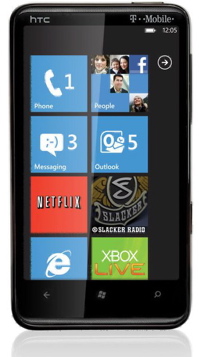
Which Windows Phone 7 smartphone will you buy?
Surely that question isn't unexpected. Last week I asked "Will you buy Windows Phone 7?" and the majority of Betanews readers responding by e-mail said they will buy, while some said they will not. You've had two days since Windows Phone 7's official launch to explore the features and learn about the nine handsets that will be available later this month (across Europe) and next month (in the United States). Now it's time for you to share with the world which phone you will buy or would buy if available on your carrier. Please answer in comments or e-mail joewilcox at gmail dot com.
Fred Schultz was among the Betanews readers who wants to buy a Windows Phone 7 handset but won't because there is no device yet available for Verizon (in the United States, AT&T and T-Mobile initially will carry WP7 smartphones). Last night he e-mailed: "OK, now after seeing it I am obsessed, and a little PO'd that Verizon doesn't have it. I would buy it on day 1!" I asked: "Whoa, are saying you'll switch carriers and buy on November 8th, Fred?" To which he replied: "Too complicated, family plan, 5 cells, Fios TV and Internet at home, but I will threaten."
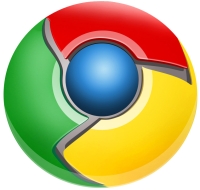
Google Chrome v8 developer build hints at future of Chrome OS
The latest developer preview of Google Chrome 8 has been released through the Chromium Dev channel, giving users a taste of the browser's improved GPU acceleration feature, better stability, and a handful of new labs including Google Instant in the browser's omnibar/omnibox search fields.
Many of the interesting features in this build are deactivated by default, so users must go to About : Labs to switch them on. This includes the GPU Accelerated HTML5 Canvas 2D option, and the Google Instant in Omnibar feature.
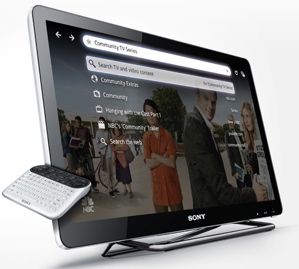
Sony launches Google TV-equipped HDTVs, Blu-ray player, crazy remote control
Consumer electronics company Sony on Tuesday evening introduced its first Google TV-powered line of products it's calling Sony Internet TV. The line includes four LCD televisions and a connected Blu-ray player which Sony put up for pre-order today.
The Sony Internet TV line of LCD TVs includes a 24-inch model for $599 (NSX-24GT1,) a 32-inch model for $799 (NSX-32GT1,) a 40-inch model for $999 (NSX-40GT1,) and a 46-inch model for $1399 (NSX-46GT1.) All models carry just about the same specs, with the exception of the backlighting. All include edge-LED backlighting except the cheapest model, which uses CCFL. Otherwise, they're all equipped with an Intel processor, built-in Wi-Fi, four HDMI ports and four USB ports, support for Android apps, and the ability to watch TV and run apps at the same time with "dual view" mode.

Georgia Tech researchers give robots ability to think amongst themselves
This week, at Robotics Rodeo 2010 at Fort Benning, Georgia, researchers from the Georgia Tech Research Institute (GTRI) will be showing off a system they have developed to let airborne and ground-based robots communicate and interact with one another without the need for a human intermediary.
The system is called CUSTD, which stands for Collaborative Unmanned Systems Technology Demonstrator, and it teams two model aircraft with nine-foot wingspans, with an unmanned Porsche Cayenne SUV. Utilizing a complex system of sensors, cameras, and computers, the two aircraft can, for example, search for a target and mark its position with GPS coordinates which are sent back to the unmanned car, which can then navigate to the target using the shortest accessible route.



